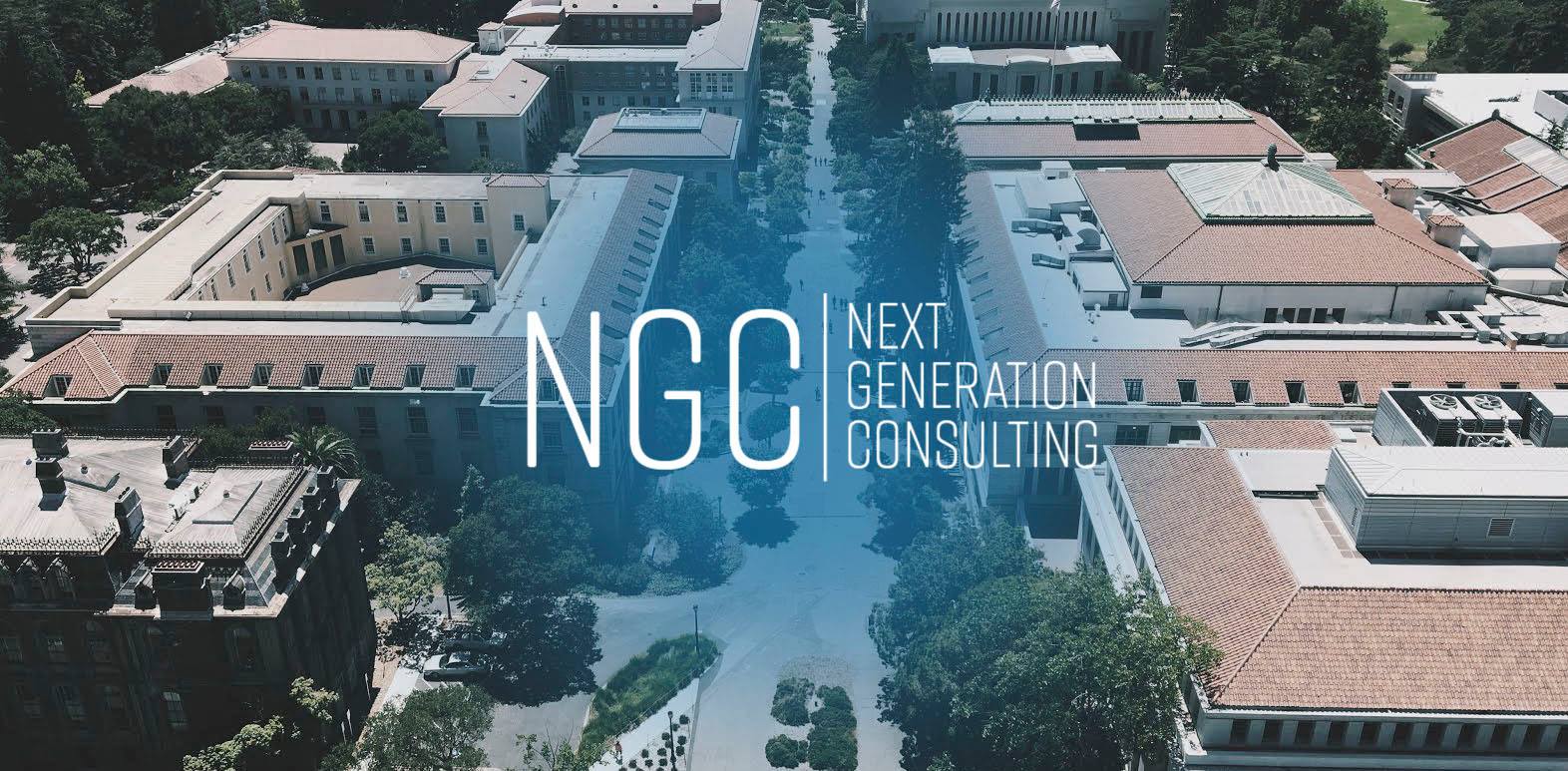NextGen Consulting – A Club Spotlight
Written by Timothy Berggren.
Consulting clubs are a dime a dozen at UC Berkeley. Almost everyone at Cal has been asked, “Are you interested in consulting?” (I’ll admit, I’ve asked people that very question). But how do you know one from the other? Each consulting group has a unique story, a unique brand, and a unique ecosystem that allows students to flourish as undergrads. This post is a spotlight on my consulting club, NextGen Consulting.

Next Generation Consulting (NextGen) is one of the newer consulting clubs on campus and I got to sit down with the other founders and former President and Vice President to talk about what inspired them and how they carved a niche in the market. Daniel Shepard, former President and Vice President, is hopeful for the new leadership and looks forward to seeing them grow. Taylor Weiss, former president, remembers all the hard work put in during the early days with other transfer students who wanted to do something different.
—
Q: Why did you start NextGen Consulting?
Taylor: There were two main reasons. First, I saw that a lot of consulting clubs were majority business majors. So what our team wanted to do was create a culture where diversity of thought and experience allowed for a bio major to work on a bio project, design major to work on a design project, etc. Second, being a transfer student, I felt like the clubs wanted someone a bit younger and we wanted to create an environment where anyone could participate at any age or level of experience and contribute.
Daniel: Coming to Berkeley, I found two problems. First, the business clubs were extremely exclusive and this really disappointed me. I thought clubs were supposed to be inclusive and help anyone who was interested in getting experience and exposure to the field. The other problem I saw was a familiarity bias, and by that I mean a lot of the consulting clubs only sought out people who were like-minded and come from like backgrounds. I wanted to start a club that questioned this status quo and allowed for diverse minds to collide.
Q: What does it take to start a club?
Taylor: The biggest thing was just sitting down with a team of people who are passionate about executing something. We all motivated each other and kept one another accountable to our commitments. Having that team or co-founder will help you to stay afloat while you’re dealing with the bureaucracy.
Daniel: The club would not have been possible without passion. For me, having that passion was what kept me going on my mission. Having a team of others who were just as passionate about the same mission kept me accountable. Another major factor was time. We had to be patient with each other and take time to hear everyone’s ideas and funnel it down into a solid game plan. Also, time to get a couple solid projects under our belt before really taking the club public.
Q: Was there ever a time you wanted to quit?
Taylor: During the early stages of starting the club it was definitely a struggle. I never once thought about quitting, but there were times where I really had to budget my time with applying for jobs, schoolwork, and other personal commitments.
Daniel: I remember being discouraged because a lot of things went wrong, but I learned that’s all part of the process. I never thought those small failures were enough to make me want to quit. I made a commitment to myself and my team and if I quit I would have regretted it for years.
Q: How do you feel about where NextGen is now?
Taylor: I’m so proud of where the club is now. The new executive board is very capable and they are doing a great job of moving the club forward. I’m grateful for the people who took a chance on us and helped shape the future of the club – from the students who took consulting positions to the companies who allowed us to help solve business problems. I’m glad to say I did something in my college career that’s going to have a lasting impact on the school even when I leave.
Daniel: I’m very happy with where Nextgen is at now. It was hard to hand off the fate of the club to someone who wasn’t an original founder but they have ambitious goals and I’m glad to be an advisor and mentor to the new president. The club has really taken on a brand of its own separate from other consulting clubs. I’d really like to take the club to other campuses when we have the secret formula ready for mass marketing.
NextGen is active in the community and has an excellent new set of leaders that are constantly moving the club forward. I remember the early days of the club when nobody thought we were serious. There were lots of people that thought we were wasting our time or that we would never get the club off the ground. Our team always looked at what could possibly go right, not what could possibly go wrong. We knew the risks, but it was more about the reward of knowing that we were contributing to something we all cared about: building an exceptional community of diverse thinkers and problem-solvers. All of NextGen’s founders worked really hard and should be acknowledged for their dedication to the project: Mark Abdelmessih, Juan Alvarado, Aaron Jauregui, and countless others who contributed along the way.